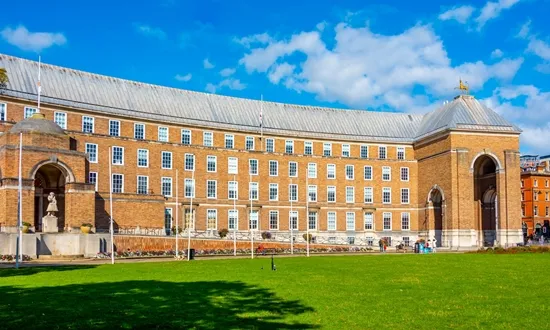The 2,160sq m plant is capable of processing six tonnes an hour of material, and will “dramatically” increase the city’s recycling capacity, said the company.
Managing director Richard Williams described the opening of the facility as a “momentous” development by creating an enhanced ability to process, sort and bale waste.
“Bristol has long been a leader in recycling. We’ve held the top spot for recycling among comparable English cities for eight years,” said Williams. “While we are doing amazing things already, this investment allows our city and region to reach even greater heights.”
The fully automated MRF was built by Encon Construction, which also worked on Bristol Waste’s Hartcliffe Way household waste and recycling centre.
Martin Fodor, chair of the council’s environment and sustainability committee, said the Avonmouth facility was a “significant step towards Bristol’s ambition of becoming a zero-waste city”.
“This increased capacity will benefit our residents, and ensure vital capacity for crews across the north of the city to process our recycling collections promptly and get materials ready to market,” said Fodor.
“It also ensures our approach to waste management is sustainable and creates opportunities for collaboration with local businesses, minimises waste, reduces reliance on unused raw materials and cuts carbon emissions across the region.”
The MRF, which Bristol Waste notes is one-and-a-half times the size of the city’s iconic SS Great Britain landmark, will reduce the mileage of the company’s collection vehicles by around 120 miles every day.
Earlier this year, Bristol council caused controversy when it appeared to be considering switching to four-weekly household residual collections. The authority had estimated that the proposals, if approved, could boost recycling rates by 10%.
However, after intense local opposition, councillors said this had always been an unlikely option, with a transition to three-weekly collections the more likely policy.
Bristol council revealed last year it was to provide Bristol Waste with an additional £4m for the 2024-25 financial year, with the company not expected to generate a profit until 2026-27. Previous reports from the council had expressed serious concern about the viability of the company, although last year’s business plan said Bristol Waste’s commercial business had tripled in size during the previous three years.
The firm’s operations director, Dan Kelly, said the MRF would also provide additional revenue for Bristol Waste to invest in services for the city.
“We are pleased to be opening this much needed facility. The investments we’ve made in our Avonmouth site are already proving to be invaluable,” he said.
